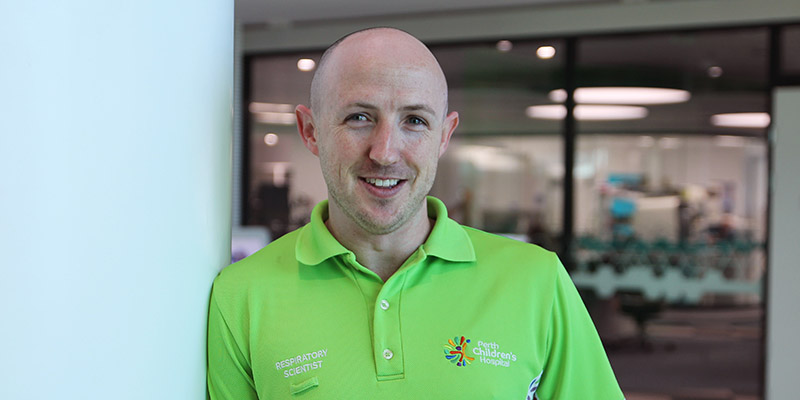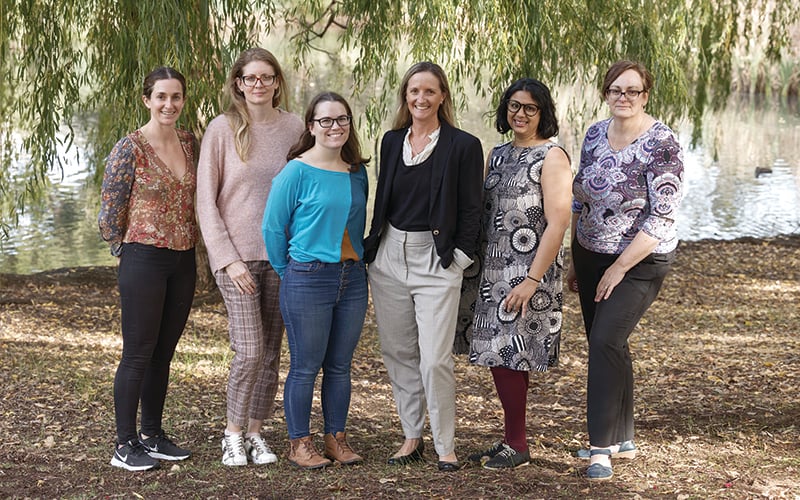Search

News & Events
Childcare centres urged to adopt new policy to boost kids’ physical activityChildcare centres will be invited to help boost children’s physical activity levels by signing on to a new program which commits them to creating more opportunities for physical activity.

News & Events
Pre-term kids get green light to exerciseParents of children born prematurely have expressed concerns about their child’s lung health when they exercise, with symptoms such as breathlessness.

News & Events
Healthway supports innovative mental health, physical activity research at The KidsThe Kids Research Institute Australia and The University of Western Australia researchers have been awarded more than $1 million in funding from Healthway, for projects to improve the mental health of LGBTQA+ young people, encourage early physical activity in childcare centres and create healthier local environme

Childcare centres have flocked to take up a new evidence-based policy to help ensure young children get more of the physical activity they need to be healthy and developmentally on track.

News & Events
Active books for active kids!Walk through the jungle, hunt for the bear, or do the animal bop this Book Week! Acting out stories is a wonderful way to encourage active play with your child.
Research
Dog ownership, dog walking, and physical function in mid-older adults: Findings from the HABITAT cohort studyTo examine the longitudinal effects of dog ownership and dog walking on self-reported and objective measures of physical function in mid- to older-aged adults.
Research
Exploring preferences for interventions to increase active school transportation among children and adolescents in AustraliaThe observed decline in children's active school transport (AST) across numerous countries over recent decades necessitates targeted, multi-level interventions to reverse this trend. However, data on young people's preferred AST interventions is lacking. This study aimed to explore children's preferences for AST interventions and assess differences between AST users and non-users among primary and secondary school students.
Research
Dog Ownership, Physical Activity, and Mental Health in Mid-to-Older Aged Adults: Findings From the HABITAT Cohort StudyDog ownership is a potential strategy for maintaining physical activity levels and supporting healthy aging. This study examined longitudinal effects of dog ownership and dog walking on physical activity and mental health in mid-to-older aged adults.
Research
Thriving Under Threat: A Scoping Review of Human Thriving in Recurring Potentially Traumatic, Elevated Threat and High Stress Work EnvironmentsIn this scoping review, we explore the concept of human thriving in work populations that are repeatedly exposed to high stress, elevated threat, and potential trauma-professions such as first responders and front-line military personnel. The concept of thriving, defined as the joint experience of development and success, shares some similarities with other psychological concepts (e.g., resilience, posttraumatic growth, flourishing), but is distinct due to the consideration of physical wellbeing, and success (e.g., performance).
Research
Does exercise in cool water cause a higher risk of hypoglycaemia than in thermoneutral conditions in type 1 diabetes?The aim of this study was to test the hypothesis that exercise in cool water results in a greater decrease in blood glucose concentration than in thermoneutral water or on land in individuals with type 1 diabetes.
